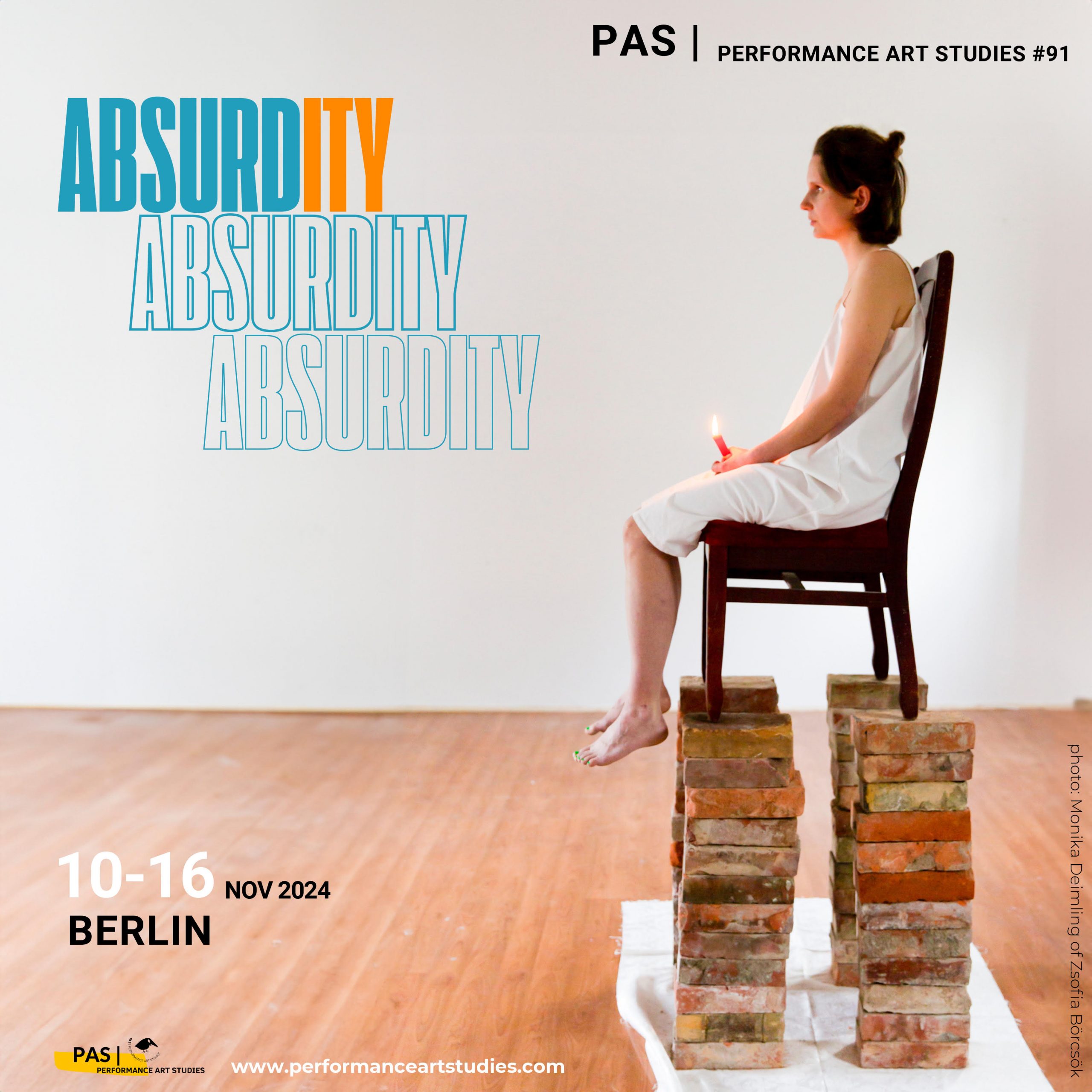Workshop
Performance Art Studies: Absurdity
A 7-day learning program offering a practical, in-depth dialogue with performance art practice in relation to absurdity as an artistic tool. In a variety of experimental settings, we aim to dive into the ocean of the absurd and explore its structure, its essence, and its potential for the process of creating.
Led by the PAS | Team: BBB Johannes Deimling and Monika Deimling
Concept
It seems to be mainly artists, or perhaps scientists, who feel comfortable in a state of absurdity: Being extremely unreasonable, senseless or so unreasonable as to be irrational or not taken seriously are states that artists know well enough. For others, absurd states would primarily cause embarrassment or an unpleasant feeling. And yes, that is understandable – even if it is not.
Allowing absurd moments and situations to happen is not always an enjoyable state, because they are outside the norm and outside how we would like life to be. They lead to a clash of viewpoints and opinions and bump into scientific facts. The absurdity is often linked to the paradox that creates this kind of non-sense, where reality is bent to the limits of acceptability. But the absurdity is always real because it exists in our lives as part of our social interactions, our behavior and our various concepts of life.
The absurdity has been important to many art movements such as Dadaism, Surrealism, FLUXUS and many others. The reason for this is not only provocation but above all the search for an understanding of our existence outside of rationality. In art, logic, and rationality are not always of any help. Logic often blocks access to another universe in which other parameters are relevant, parameters that are no less important for life than rational ones. In mathematics, for example, 1+1 equals 2, but in art, 1+1 can equal 7 or sometimes 1. This means that the sun is not always yellow and the sea is not always blue, that life is not what we want it to be, and that the absurd lurks around the next corner. The absurdity is often used as a tool to get closer to the reality of our existence, similar to what we can observe in philosophy.
Often linked to humor and/or poetry, absurdity is not always dramatic or tragic. Humor and poetry build bridges to explore the absurd, they can be a compass to maneuver through its complex structure. And this is exactly the starting point of the research, where we want to jump into the absurd universe and find solutions on how to use the absurd as a creative and constructive tool in performance art.
With PAS | 91 we aim to dive into the ocean of the absurd and explore its structure, its essence, and its potential for the process of creating. We offer a practical, in-depth dialogue with the practice of performance art in relation to questions of the research topic, which is essential but not exclusive to performance art. Sculpture, painting, dance, theater, architecture or music equally work with absurdity to create, formulate and visualize. The inclusion of various factors allows for an in-depth exploration of performance art that incorporates creative processes and provides access to individual work and concept development. Through a variety of experimental settings, we will explore the absurd and create performance art works that bend logic, extend perspectives and engage the body. The performance artworks created in this process will be presented to the public in a festival-like public presentation at the end of the program in Berlin, Germany.
Workshop-Team
BBB Johannes Deimling as a teacher
Visual artist working with performance art, film, drawing and sound.
He is the founder and artistic director of PAS | Performance Art Studies.
Monika Deimling as a critical observer and photographer
Visual artist working with photography, embroidery and film.
She is a creative manager and photographer of PAS | Performance Art Studies.
Price & Application Deadline
Early bird price: € 350 for registrations until September 30, 2024
Regular fee: € 395 (possible payment by installations)
Closing date for applications is 23 October 2024
Applications are reviewed on a rolling basis, meaning that studies may fill up before the closing date.
Maximum 12 participants
You will find more information and can apply for the workshop here .

